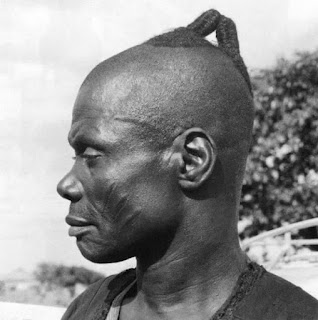HOMEGROWN LEADERSHIP STRUCTURES
AJI SE BÍ Ọ̀YỌ́ L'ÀÁRÍ, Ọ̀YỌ́ Ò ṢE BÍ BABA ẸNÌKAN
( It's normal to see fledgling Òyó wannabes, but Òyó's greatness was self architected )
The Oyo empire is older than the British Empire, Òyó's ancient but evergreen Administrative and Military arrangements made the people of the land World Class Social Engineers. "Ìtọ̀sẹ̀ l'ó l'Ọ̀yọ́" ( Meaning: Oyo is a place where due process is key ).
( It's normal to see fledgling Òyó wannabes, but Òyó's greatness was self architected )
The Oyo empire is older than the British Empire, Òyó's ancient but evergreen Administrative and Military arrangements made the people of the land World Class Social Engineers. "Ìtọ̀sẹ̀ l'ó l'Ọ̀yọ́" ( Meaning: Oyo is a place where due process is key ).
EXECUTIVE CUM JUDICIARY
The Aláàfin : He declares and fight in wars (Aláàfins were relieved of the rigours of the battle field at the Yorùbá Constitutional Conference called by Aláàfin Àtìbà in the 19th Century), and is the face of the Emipre to the neighbouring states. He is the Ceremonial President, the Supreme Court Judge for the people, but the people get to judge him in a very civil and noiseless manner, when he becomes too tyrannical, the worst sentence to an Aláàfin is "Òyó rejects you"
.
The Basọ̀run: He's the equivalent of the British Prime minister, He's the head of the Òyó Mesi (The group in the Legislative arm that represents the politicians and the interfaces between the politicians and the people ( The Ogboni [Meaning: The nobles] ).
Olóyè: These are ministers the Ìyálode is the minister of Women affairs and Socials, Iyalọ́jà is saddled with the dynamics of the economy and the welfare of the market actors, e.t.c
LEGISLATURE
The Oyo Mesi were seven principal councilors of the state. They constituted the Electoral Council and possessed legislative powers, similar to today's United States Congress. The Bashorun, Agbaakin, Samu, Alapini, Laguna, Akiniku and an Ashipa are the seven members of this council. They represented the voice of the nation and had the chief responsibility of protecting the interests of the empire. The Alaafin was required to take counsel with them whenever any important matter affecting the state occurs. Each man had a state duty to perform at court every morning and afternoon. Each mesi had a deputy whom they would send to the Alaafin if his absence was unavoidable.
The Ògbóni: The nobles, representative of the citizens in the meetings with the Oyo mesi in the Legislative Council.
MILITARY
There was a high degree of professionalism in the army of the Oyo Empire. Its military success was due in large part to its cavalry as well as the leadership and courage of Oyo officers and warriors.
Ìlàrí : Mostly eunuchs, they are the secret agents, task and tax enforcement agents, and Royal messengers ( They fare all roads to deliver messages, from the earth to the afterlife )
Ààrẹ Ọ̀nà Kakanfò: An office started by Aláàfin Àjàgbó. Ààrẹ is the generalissimo of the Yorùbá Armed Forces, he's saddled with the responsibility of organising the armed forces. Oyo maintained a semi-standing army of specialist Horse-mounted soldiers called the Ẹ̀ṣọ́. These were 70 junior war chiefs each with many infantrymen, they were nominated by the Oyo Mesi and confirmed by the Alaafin of Oyo.The Aare musn't live at the capital with the Aláàfin, he either wins a war or commit suicide for the shame of failing his Country.
Oníkòyí Ẹ̀ṣọ́ : He's the head of the Presidential guard (Aláàfin's Security details ), who are called the Ẹ̀ṣọ́ Ìkòyí. He leads his army to join forces with the Ààrẹ during important wars of external aggressions or to stop a rebellion.
Badà: A rank of elite knightly horsemen usually armed with a lance. Ìbàdàn used a rank called "Sàrùmí" for the leadership of their mounted division.
Gbọ̀nkáà: An army rank of elite soldiers; they were very instrumental in Aláàfin Ọ̀rọ̀npọ̀tọ̀n'iyùn's mission to reclaim the Yorùbá's capital from the neighbouring Nupe people. The rank was prominent also in Ṣàngó's age, as evident in the Tìmì-Gbọ̀nkáà fatal saga.
Reference: Wikipedia (Òyó Empire ), "Samuel Johnson's History of the Yorùbás", "War and Peace in Yorùbáland", "Ilorin: Diplomacy as a veritable instrument of war", "Global History of Cavalry Warfare"
-Akinade






















No comments